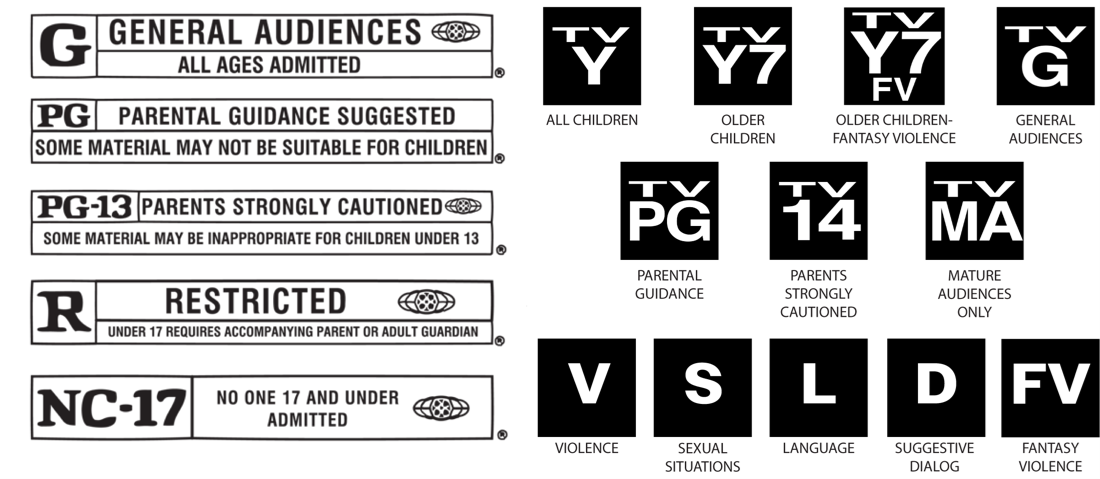New Content Challenges Face Media & Entertainment
Due to government-mandated regulations, exporting content to international markets poses a significant challenge for many in the Media and Entertainment (M&E) industry. These regulations can take different forms and are intended to guide the public on the age appropriateness of film or TV titles. From a creator and distributor perspective, keeping up with the changes and understanding their rationale requires skills and knowledge outside their core competency. Non-compliance can result in financial penalties and is complicated because regulations are subject to change, and no two countries implement rules similarly. This post explores three types of changing regulations globally: local content requirements, prohibitions on Diversity, Equity, and Inclusion (DEI) content, and revised age-rating criteria.
Local Content Requirements
As the streaming industry continues to grow, platforms are investing billions of dollars in attempts to produce original content. Stories that resonate with audiences are more likely to attract their attention. Regulators have noticed and are implementing new regulations to secure their share of the economic benefits and require investment in local productions.
Local content requirements exist in many countries, including Canada, France, Denmark, Australia, and India. Canada recently passed Bill C-11, "the Online Streaming Act," which brings streaming platforms under the Canadian Radio-television and Telecommunications Commission (CRTC) regulatory authority for the first time. The CRTC now requires content creators to prove that each piece of content meets Canadian standards, and streaming platforms ensure search algorithms prioritize Canadian content. Fines can be imposed for non-compliance.
Diversity, Equity, and Inclusion
Despite the M&E industry's support for DEI, many governments worldwide have continued restricting or prohibiting content depicting LGBTQ characters or storylines in film or TV shows. Successful films with diverse stories or leads, such as "Black Panther: Wakanda Forever" and "Strange World," have been banned or require higher age ratings in countries such as Russia, Saudi Arabia, Singapore, Iran, and the UAE. Although recent studies indicate gains in Hollywood, others show DEI improvements in British Columbia and European productions have been slow to take hold.
In the U.S., some states, including Florida and Texas, have passed laws that limit how LGBTQ+ or race-related issues can be shown or discussed in educational institutions or venues. This includes prohibitions on public access to books, videos, or films mentioning aspects of LGBTQ+ life and the performance of plays or movies with diverse stories or leads.
Age-Rating Regulatory Changes
Content classification regulations are being revised in countries worldwide to expand the number of age groups they consider and to ensure content is more appropriately classified in order to meet the country's cultural and legal requirements.
Vietnam's Ministry of Culture, Sports and Tourism (MCST) announced it added two new age groups to the existing four: P (all ages), 13+, 16+, and 18+. The new categories are "K" for viewers under 13 and "C," indicating a film cannot be distributed. More specific classification criteria will accompany the new age groups on topics or content such as violence, nudity and sex, drug use, horror, offensive language, and dangerous imitable behavior. The rating criteria for nudity and sex have expanded to consider the age of the characters and their possible impact on the viewer.
In addition to the classification changes, all titles, except films rated "P," must now prominently display the classification level "during the dissemination process," which means trailers, ads, posters, etc. The content shown on TV or streamed must now exhibit the classification label within three seconds of airing and then three times over the course of the showing if the title is longer than 20 minutes long. The new regulations are available here.
India's Union Cabinet has announced it will begin amending the 1952 Cinematograph Act to add three new sub-categories to the existing "UA" rating. The new sub-categories UA 7+, UA 13+, and UA 16+ provide more details to parents or guardians and take Indian culture and norms into account. The "UA" classification is analogous to the "Parental Guidance" or PG rating in the U.S. and provides guidance on whether a film is inappropriate for children under 12. The IT Rules of 2021 already require streaming services to use these age classifications with content descriptors, and the amendment would bring cinema ratings on par with streaming.
The Importance of Staying Current
Navigating the regulatory landscape is challenging for content creators, who must stay informed and adapt to changing regulations to succeed in global markets. Failing to comply with country regulations and policy changes can delay a title's release, increase post-production costs, adversely impact market acceptance and revenue, and damage a brand. Few content companies have the expertise or capacity to stay current on all changes affecting global M&E markets, but Spherex has you covered. Subscribe to World M&E News to have the latest international regulatory news delivered directly to your inbox.
If you have content you want to distribute globally, Spherexratings™ and Spherexgreenlight™ are the best tools available to prepare your titles to ensure audience acceptance and reduce brand risk.
Contact Spherex today to learn more.
Related Posts


SILICON VALLEY
2336-H Walsh Ave.
Santa Clara, CA 95051
+1(408) 550-2344
LOS ANGELES
3900 W Alameda Ave.
Burbank, CA 91505
+1(310) 496-7307









